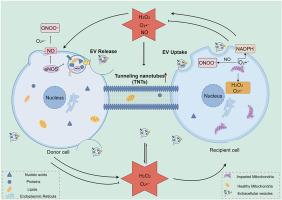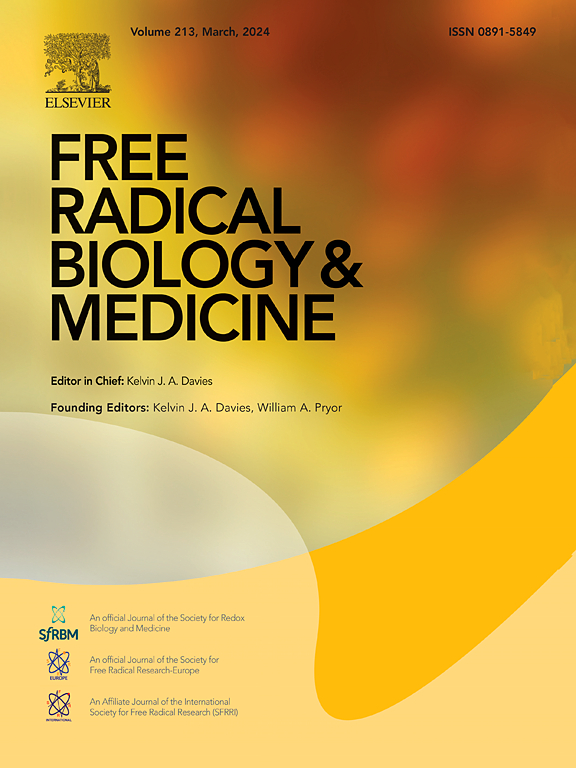Brain rewired: Redox control of brain cell crosstalk via nanotubes and vesicles
IF 8.2
2区 生物学
Q1 BIOCHEMISTRY & MOLECULAR BIOLOGY
引用次数: 0
Abstract
Redox balance is critically important for maintaining normal physiological functions in the brain. Disruptions in this balance, whether through excessive reduction (reductive stress) or excessive oxidation (oxidative stress), can contribute to the onset and progression of neuropathological conditions. For decades, research has predominantly focused on the impact of redox imbalance in inducing nervous system damage at the level of single cells, subcellular organelles, and macromolecular changes. Recent evidence increasingly indicates that redox status not only affects intracellular processes but also plays a pivotal role in regulating intercellular communication. Specifically, redox imbalance has been shown to influence the formation of tunnelling nanotubes and the secretion of extracellular vesicles (EVs, such as microvesicles, exosomes), both of which are critical for the transfer of cellular signals, organelles, and biomolecules between cells. In this review, after a succinct introduction to key concepts related to redox biology, we present a comprehensive overview of intercellular communication and its interaction with redox balance in the brain, encompassing both genetic and epigenetic modifications.

大脑重新布线:通过纳米管和囊泡的脑细胞串扰的氧化还原控制。
氧化还原平衡对维持大脑正常生理功能至关重要。这种平衡的破坏,无论是通过过度还原(还原性应激)还是过度氧化(氧化应激),都可能导致神经病理状况的发生和进展。几十年来,研究主要集中在氧化还原不平衡在单细胞、亚细胞细胞器和大分子变化水平上诱导神经系统损伤的影响。最近越来越多的证据表明,氧化还原状态不仅影响细胞内过程,而且在调节细胞间通讯中起着关键作用。具体而言,氧化还原失衡已被证明会影响隧道纳米管的形成和细胞外囊泡(EVs,如微囊泡、外泌体)的分泌,这两者对于细胞信号、细胞器和细胞间生物分子的转移都至关重要。在这篇综述中,在简要介绍了与氧化还原生物学相关的关键概念之后,我们全面概述了细胞间通讯及其与大脑氧化还原平衡的相互作用,包括遗传和表观遗传修饰。
本文章由计算机程序翻译,如有差异,请以英文原文为准。
求助全文
约1分钟内获得全文
求助全文
来源期刊

Free Radical Biology and Medicine
医学-内分泌学与代谢
CiteScore
14.00
自引率
4.10%
发文量
850
审稿时长
22 days
期刊介绍:
Free Radical Biology and Medicine is a leading journal in the field of redox biology, which is the study of the role of reactive oxygen species (ROS) and other oxidizing agents in biological systems. The journal serves as a premier forum for publishing innovative and groundbreaking research that explores the redox biology of health and disease, covering a wide range of topics and disciplines. Free Radical Biology and Medicine also commissions Special Issues that highlight recent advances in both basic and clinical research, with a particular emphasis on the mechanisms underlying altered metabolism and redox signaling. These Special Issues aim to provide a focused platform for the latest research in the field, fostering collaboration and knowledge exchange among researchers and clinicians.
 求助内容:
求助内容: 应助结果提醒方式:
应助结果提醒方式:


